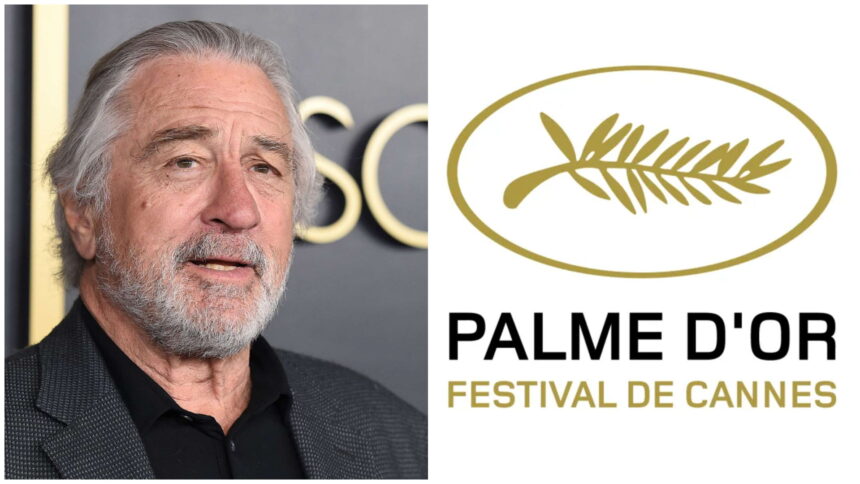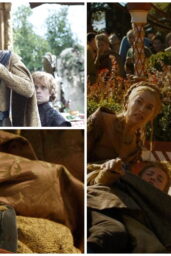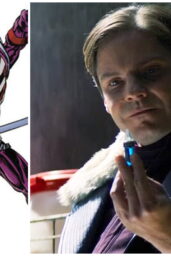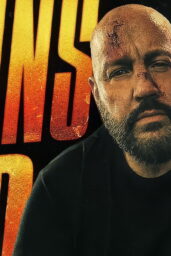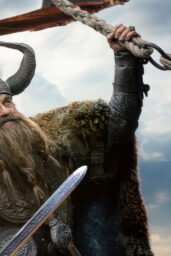Imagine being so good at your job that international institutions stop the world to clap. Not a TikTok “clap” either—real, sweaty-palmed applause from people who've seen Raging Bull twenty times and still flinch during the “You never got me down, Ray” scene.
That's what Cannes is doing for Robert De Niro in 2025. He's not just walking down the red carpet. He's being handed the honorary Palme d'Or—the kind of thing they give legends before they're turned into marble statues.
And yeah, it's a big deal.
But here's the uncomfortable truth: we almost forgot how great he was.
Argument: The De Niro Divide—Icon vs. Punchline
Let's face it. If you're under 30, there's a chance your main reference point for De Niro is… Meet the Fockers. Maybe The Intern. Maybe, God forbid, those Uber Eats ads where he's upstaged by a sandwich.
It's not your fault. Hollywood did that thing it does—recycled a legend into a meme, cashed the nostalgia checks, and moved on.
But this Cannes moment? This is cinema correcting its own history.
It's a reminder that before De Niro was Hollywood's go-to grumpy grandpa, he was a force of nature. A Method actor so committed he literally ground his teeth down for Cape Fear. A performer who gave us characters like Travis Bickle and Jake LaMotta—men so haunting they live rent-free in pop culture decades later.
And the irony? Cannes knows this better than Hollywood.
Deep Dive: Cannes vs. Hollywood—Who Really Remembers?
While L.A. buries its past in reboots, Cannes curates it like sacred scripture. The festival has a long tradition of lifting up auteurs and actors whose artistry challenges the mainstream.
De Niro isn't just a Hollywood star to Cannes—he's cinema incarnate. They've watched him evolve from the firecracker in Mean Streets to the quiet storm in The Irishman.
In 1976, Taxi Driver won the Palme d'Or. That matters. That Cannes jury didn't just see a violent vigilante story—they saw a poetic takedown of urban alienation, anchored by De Niro's tortured brilliance.
Fast forward nearly 50 years, and here he is again—back at the same festival, not with a movie, but as the movie.
Masterclass Moves: The Debussy Theater Moment
The day after receiving the award, De Niro will take the stage for a masterclass at the Debussy Theater.
Masterclass. Think about that word.
This isn't Comic-Con. It's not a press junket. It's a literal class taught by a master. And who better to lead it than a man who, even in silence, makes you wonder what's burning behind his eyes?
Attendees won't just hear anecdotes. They'll get a front-row seat to one of acting's last true titans explaining his process, his failures, and maybe why he stuck around through all those bad comedies in the 2000s.
Here's the Wild Part: Maybe We Owe Him an Apology
Yes, De Niro said yes to a lot of questionable scripts. (Righteous Kill, anyone?)
But here's the thing: how many actors don't stumble in Act Three of their careers? How many survive being typecast, digitally de-aged, or turned into a Twitter punchline—and still show up and act like it's opening night at The Public Theater?
De Niro never stopped acting. We just stopped watching closely.
So when Cannes gives him that Palme d'Or, they're not just honoring his past—they're indicting us. For forgetting. For reducing him to “Are you talkin' to me?” jokes and ignoring the rest.
Would You Risk Legacy for Relevance?
That's the question De Niro's career throws in our face.
He could've retired at 50 with his legend intact. Instead, he stayed. Kept working. Took risks. Some flopped. Some soared (Silver Linings Playbook, The Irishman). All of them meant something.
It's easy to mock the misses. Harder to admit we abandoned him when he needed better scripts. Cannes didn't.
And now, they're reminding us why he mattered in the first place.

